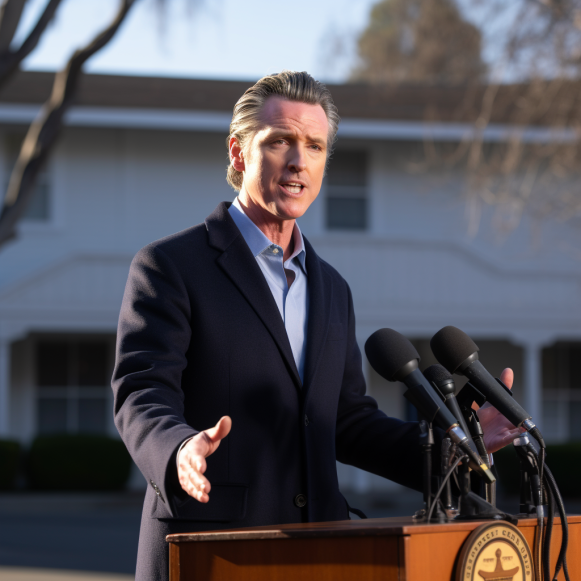Gov. Newsom signs laws to fast-track housing on churches’ lands, streamline housing permitting process

SACRAMENTO, Calif. — Under a new law aimed at combating the ongoing homeless crisis, religious institutions and nonprofit colleges in California will be allowed to convert their parking lots and other properties into low-income housing.
The bill, signed by Gov. Gavin Newsom on Wednesday, rezones land owned by nonprofit colleges and religious institutions such as churches, mosques, and synagogues to make room for affordable housing. Beginning in 2024, they will be able to avoid most local permitting and environmental review rules, which can be costly and time-consuming. The law will expire in 2036.
Nearly one-third of all homeless people in the United States live in California. The crisis has sparked a movement among religious institutions in cities across the state known as “yes in God’s backyard,” or “YIGBY,” with a number of projects already in the works.
However, churches and colleges frequently face significant challenges when attempting to convert surplus land and underutilized parking lots into housing because their land is not zoned for residential use.
Proponents argue that the new law will help build much-needed housing in the state. According to a recent Terner Center for Housing Innovation study, California religious and higher education campuses have more than 170,000 acres (68,797 hectares) of land that would be eligible under the bill.
Several cities objected to the bill, claiming that it would erode local control over housing developments.
In addition, Newsom signed another high-priority housing bill authored by Sen. Scott Wiener to extend the life of a landmark law streamlining rules for housing projects, which has resulted in the construction of thousands of homes aimed at alleviating the state’s housing crisis.
“California desperately needs to ramp up housing production, and the Governor’s actions today help put us on a path to achieve that goal,” Wiener said in a press release. “The days of saying no to housing are over.” We’ve been sowing the seeds for a better housing future in California for years, and we’re still going strong today.”
The original law, which went into effect in 2018 and is set to expire in 2026, allows housing developers to avoid most local permitting processes for multifamily housing projects in cities that fall short of the state’s housing goals. According to the bill’s author, Democratic Sen. Scott Wiener, the law has accelerated the construction of more than 19,000 homes, with roughly 60% of them being affordable housing. The new law would extend the current rules for ten years.
The new law would also eliminate the requirement to hire “skilled and trained workers” for a number of projects, a provision that the powerful construction trades union has long sought. It instead mandates that workers be paid the prevailing wage, which is the average wage paid to workers, laborers, and mechanics in a given area. In response to labor group opposition, Wiener added amendments to strengthen labor regulations on larger projects.
In July, the bill was met with strong opposition from the state Coastal Commission and environmental groups because it would eliminate the exemption for streamlined housing development in coastal zones. Opponents were concerned that the bill would place housing in areas vulnerable to sea-level rise or wildfires, paving the way for luxury apartments rather than affordable housing along the coast.
Wiener collaborated with the commission to ensure that the legislation does not apply to environmentally sensitive or wildfire-prone areas. Although the commission withdrew its opposition, a number of Southern California cities continued to oppose the bill, claiming it would take away local control.
The governor signed these bills on the same day that his administration and Sacramento leaders announced the location of the first group of 1,200 tiny homes he has pledged to build in four cities to combat homelessness.




